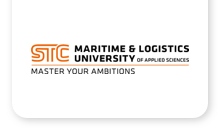Finance and Economics
The Master topic Finance and Economics consists of the following subjects:
Shipping Economics and Port Economics
These two courses provide an overview of all major aspects of shipping and port economics. Typically, maritime organisations (should) have a global scope as their business extends itself to all corners of the globe. Shipping has an essential role in enabling world trade and linking economies together. In this course generic economic theories and instruments are applied to a maritime context.
Basics of Finance and Accounting
This part is the introductory course in management accounting, management control and financial management for students with no previous financial or business education. The course is based on international accounting standards and business practices. Students will be introduced into cost accounting concepts, be able to conduct financial analysis and learn the key principles of management control and financial management performance tools and models.
The aim of this specialised finance course is to bring the students awareness of and basic knowledge about principles in ship finance, sources of finance, financing structures, risk analysis and the role of commercial banks and other financial institutions in the shipping market. After the course, students will be able to assess proposals for ship investments and to make a structure for financing a ship.
Port Finance
The objective of this advanced course on port finance is to introduce students to main trends in the port sector which have an influence on the way port infrastructure is restructured and financed. Students will gain insights into the main principles of financial structuring of port assets and financial analysis tools for port investments and financing. Important elements in port financing are the development and structures of public private partnerships (PPP), concession contract analysis and the ability to determine the so-called bankability of a port finance proposition.

